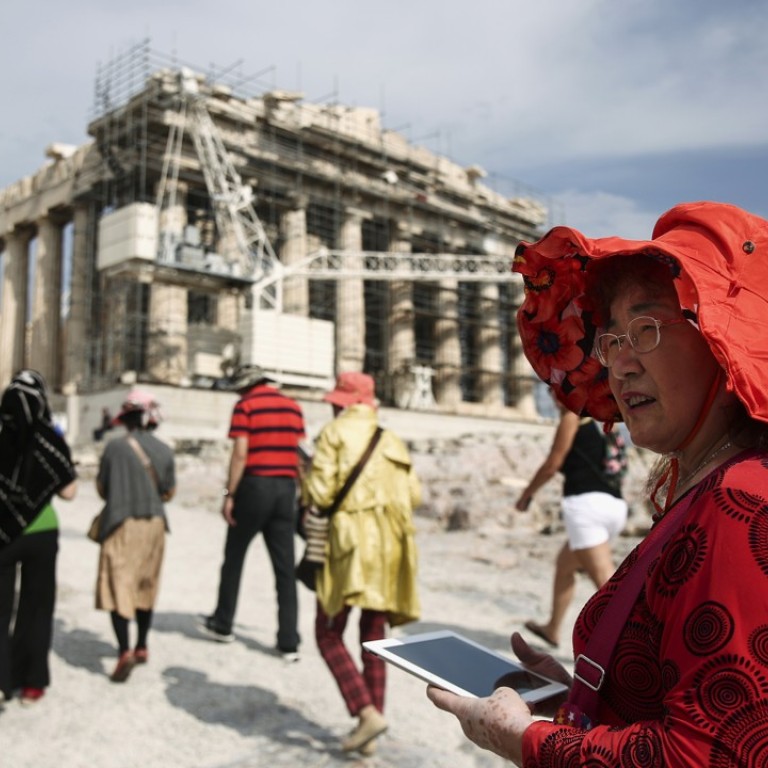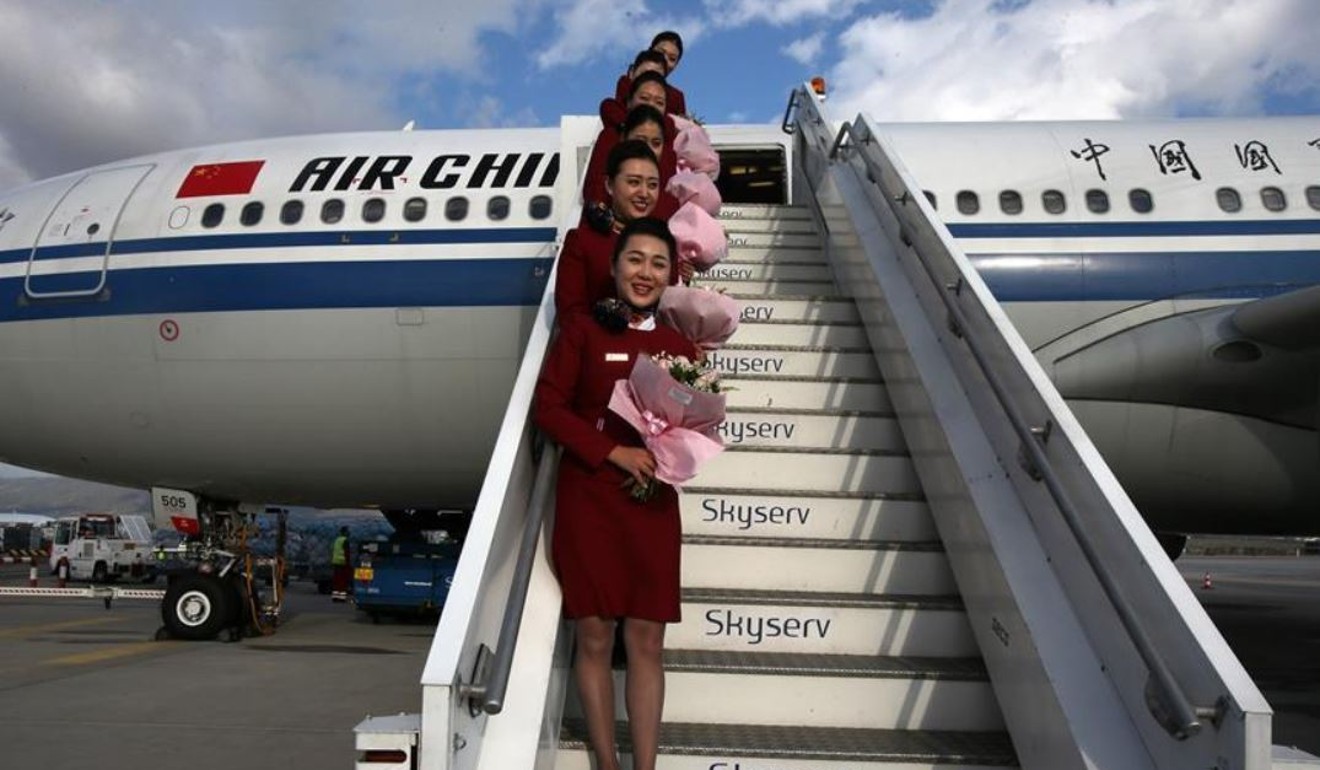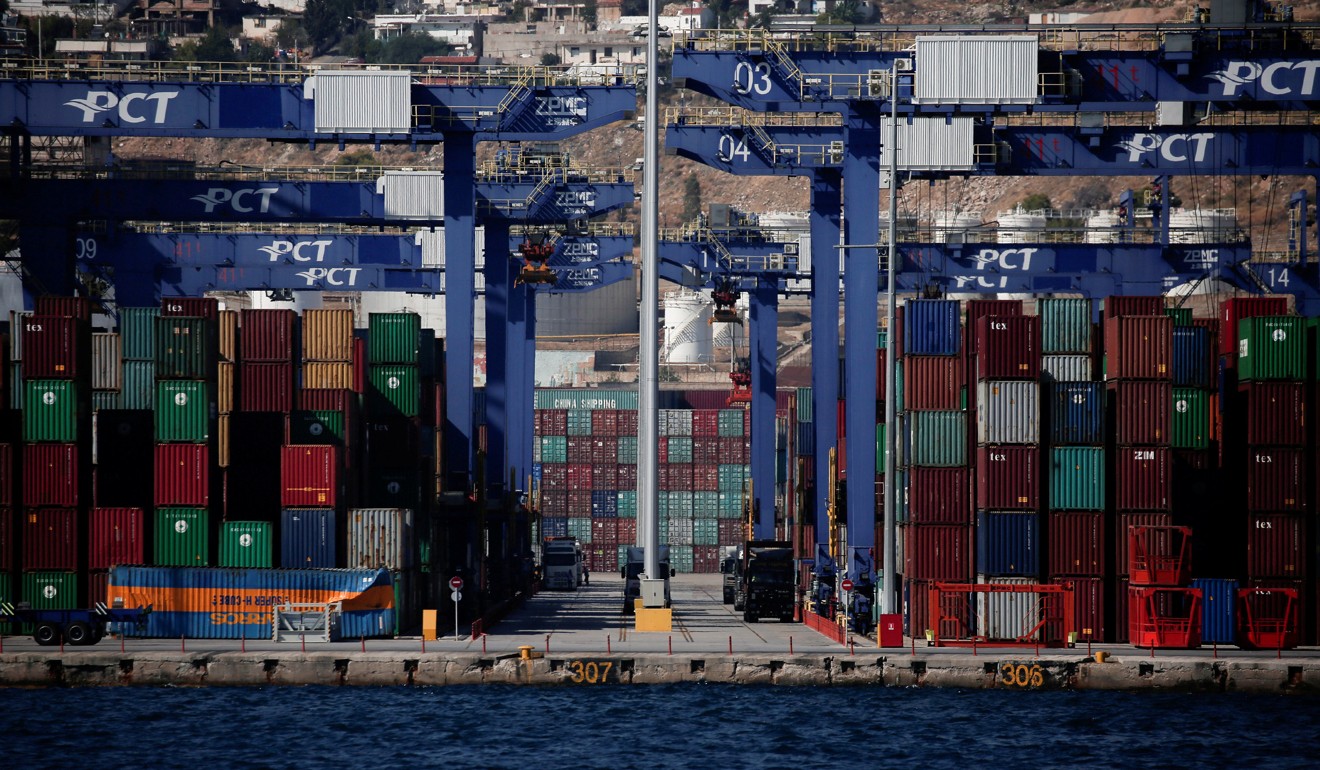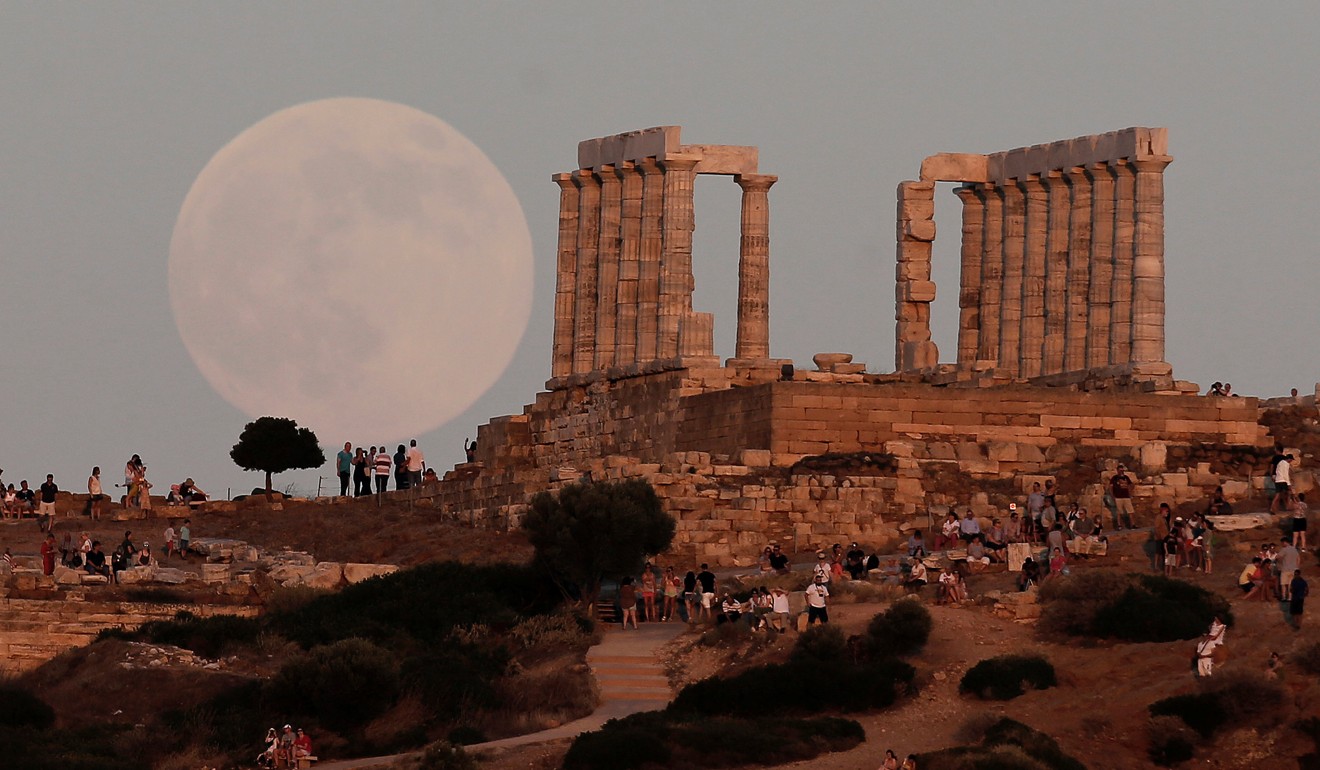
As tourism and trading links soar, will Greece become the bridge between China and the rest of Europe?
Visitor numbers are soaring since Air China began direct Beijing-Athens flights, while Chinese shipping company Cosco has taken majority ownership of the Piraeus Port – a potentially crucial component of the Belt and Road Initiative
Priceless relics that belonged to one of China’s greatest leaders will leave Beijing’s Forbidden City for the first time and be displayed in the birthplace of democracy.
Reconstructed rooms and more than 150 artefacts from the life of the 18th-century Emperor Qianlong will go on show in September in the white marble Acropolis Museum in Athens.
Over the past three years, Chinese tourism to Greece has grown rapidly, due partly to the scheduling of a direct flight three times a week from Beijing operated by Air China, cutting the journey time to 10 hours.
According to the Greek Ministry of Tourism, there were 120,000 Chinese visitors to Greece in 2017, an increase of more than 35 per cent over the previous year – not counting those who entered the EU through another country, such as France or Italy.

Only one in 10 Chinese have a passport, so it is a market that has exponential growth potential
Athens is the favourite destination, followed by the island of Santorini, where newlywed couples go for drawn-out photo shoots, paying small fortunes for romantic shots with a backdrop of pristine white villages and cobalt sea.
For debt-ridden Greece, all tourists are welcome.
Athens taxi driver Theodoros Korlotsidis explained: “You know why we like the Chinese? They don’t come in July and August like the others do so they give us business all year round.”
Travel and tourism to Greece contributed to €35 billion (US$41 billion) in 2017. That’s 19.7 per cent of the country’s GDP.
Chinese tourists have a reputation for being high spenders, too. In 2017, Chinese travellers to Greece spent an average of €5,679 (US$6,600) per trip or €931 (US$1,080) per day, a total of almost €400 million (US$465 million), according to the Tourism Ministry.
Economist Mark Williams from Capital Economics in London said the real spending figure might not be that high, as many Chinese also use the excuse of a holiday to move currency out of the country.

Greece is relying on tourism to help it through its protracted financial crisis, so China is a market Athens is only too keen to tap.
Greek politicians are often on the Air China flight to Beijing. Tourism Minister and former model Elena Kountoura visited China in May. Last week it was the turn of Nikos Voutsis, the speaker of the Greek parliament.
“We believe we are a bridge between Europe and China for the economy as well as for culture,” he said before embarking on a five-day trip to China.
When the Greek financial crisis began in 2009, China provided a lifeline to a nation squeezed by the European Union and the International Monetary Fund.
In 2009, the Chinese shipping company Cosco began managing two terminals at Piraeus Port, Greece’s most important infrastructure hub.
In 2016 it bought a 51 per cent stake in the port for US$314 million with an option to buy another 16 per cent after five years.


The Chinese acquisition has in many ways been a remarkable success. Profits in 2017 were 68.6 per cent higher than 2016, when the Chinese took over.
But Greek workers at the port complain of short-term contracts and labour laws that have not been recognised.
At the start of June, dozens of striking workers prevented Cosco employees from getting to work by blocking the two entrance gates to cargo terminals as well as the company’s offices at the port, claiming Cosco does not fulfil its obligations as an employer.
The acquisition also included a site and plans to build a cruise terminal complex, started well before the Chinese arrived with an agreed facility of €100 million in European Union funding.
Cosco said in January it planned to go ahead with the new cruise terminal as well as building at least four new hotels in the area and a huge shopping centre.
The new terminal would, the company said, bring 100,000 more Chinese tourists to Greece.
But Cosco’s plans have rung alarm bells among the residents of Piraeus who claim it is not only unnecessary but will also have a huge negative environmental impact with little benefit to the Greek economy.
“The biggest cruise ships can carry up to 8,000 people, the Acropolis can only take that number of visitors in one day,” said Sotiris Alexpoulos of the local citizens organisation Port Friendly to the City.
“We need real tourists who stay in our hotels and eat in our tavernas. We are trying to get Cosco on our side, after all Cosco have never been involved in cruise ships.”

